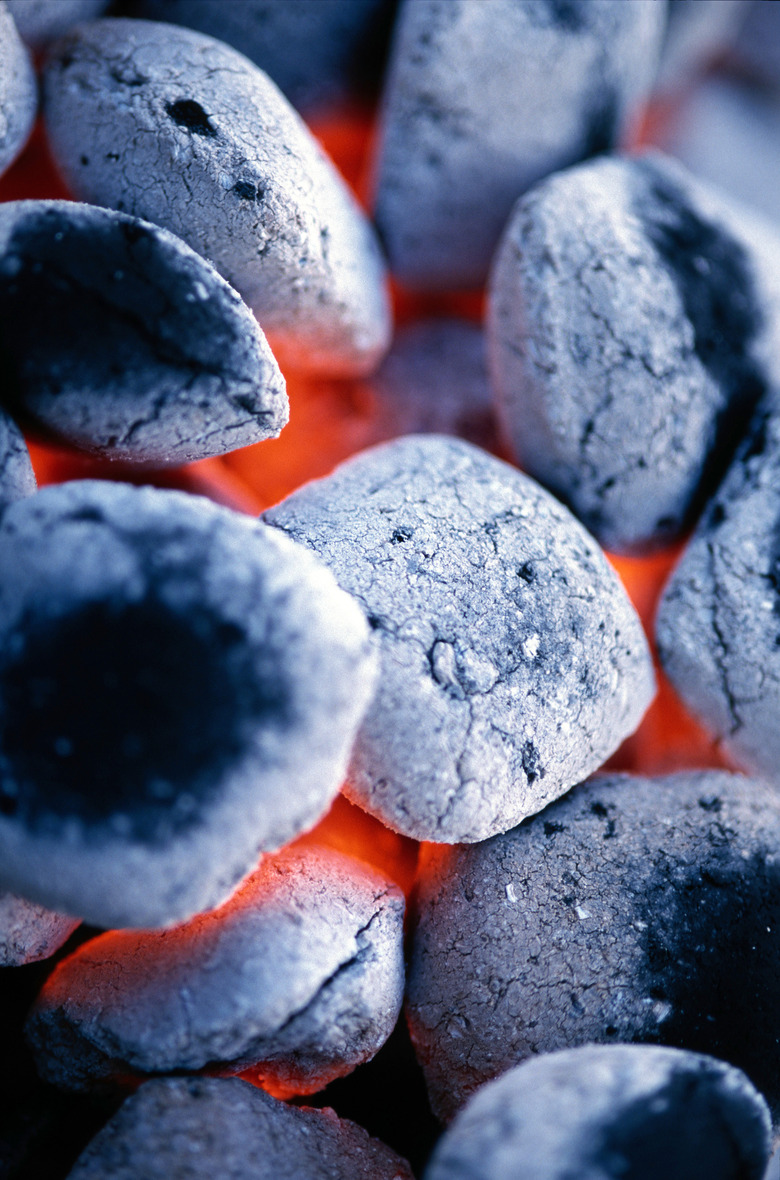Can Ashes From Charcoal Briquettes Be Used As Fertilizer?
As you look around your home for products and leftovers to recycle, you may look to your barbeque grill and wonder how ashes from your last family cookout can be recycled. Some people use the ashes of burned, untreated wood to increase alkalinity and nutrients in the soil. However, the ashes from natural, untreated wood are very different form the ashes from charcoal briquettes.
Seemingly Usable Qualities
Step 1
In theory, as an organic carbon material, charcoals seem like they would have many benefits as a fertilizer in the garden landscape once they break down into ashes. Once the carbon has burned away, the leftover ashes are high in minerals like potassium. Potassium is an essential nutrient and one of the primary minerals in complete or balanced fertilizer. This nutrient is good for your plants in healthful quantities, but causes problems like fertilizer burn and nutrient deficiencies in plants if provided excessively. However, it is not an overdose of potassium that is the biggest concern with charcoal briquettes. Charcoals briquettes are made of a carbon residue that has been manipulated and that contains additives dangerous to your plants. The chemicals in the briquettes and their ashes makes them a dangerous fertilizer in the garden.
- As you look around your home for products and leftovers to recycle, you may look to your barbeque grill and wonder how ashes from your last family cookout can be recycled.
- However, the ashes from natural, untreated wood are very different form the ashes from charcoal briquettes.
Toxic Additives
Step 1
In addition to toxic chemicals and compounds added to make the coal light and burn quickly, such as sulfur oxides, non-organic charcoals contain binders and additives that include petroleum, paraffin, lighter fluid, borax and sodium nitrate, as well as other compounds like limestone, starch, sawdust and mineral carbon. There are some natural briquettes which are purely composed of mineral carbon and a starch binder; however, the ashes of these coals are still not good for your garden plants, especially edible crops because those eating them can be at risk too.
Inappropriate Uses
Step 1
Wood ashes are to be used and sparingly when needed as an amendment for your garden and landscape plants. Charcoal ashes, on the other hand, should never be used as a nutrient supplement or fertilizer material in the garden landscape. Do not dispose of charcoal briquette ashes in a compost pile because the toxins may taint the compost and the plants that will later grow in it. Charcoal briquettes containing lighter fluid are especially toxic for you and your family and should never be thrown into compost or worked into the soil.
Horticultural Charcoal
Step 1
Horticultural-grade charcoal is a type of fine charcoal, unrelated to grilling briquettes, which is suitable for use in the garden landscape. It is used, not as a fertilizer, but to improve drainage and retain moisture in the soil. It is typically mixed into compost at a 50/50 rate and worked into the soil. Horticultural charcoal also assists fertilizing agents, such as compost, by preventing nutrients from leaving the from the soil when it rains.
- In addition to toxic chemicals and compounds added to make the coal light and burn quickly, such as sulfur oxides, non-organic charcoals contain binders and additives that include petroleum, paraffin, lighter fluid, borax and sodium nitrate, as well as other compounds like limestone, starch, sawdust and mineral carbon.
- Charcoal briquettes containing lighter fluid are especially toxic for you and your family and should never be thrown into compost or worked into the soil.
